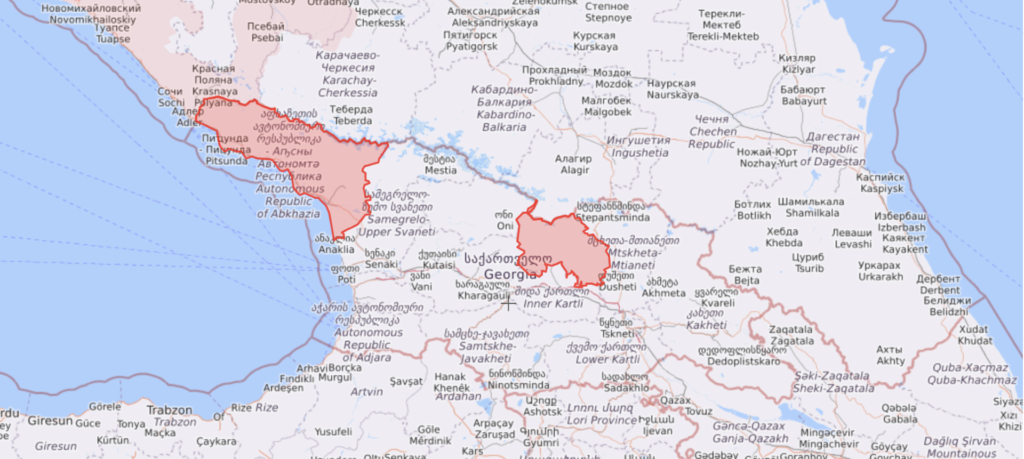
In recent years, Russia’s diplomatic efforts have been strategically directed towards fostering closer ties with Georgia, a country that has maintained a somewhat tenuous relationship with its northern neighbor since the Russo-Georgian War of 2008. These overtures have raised questions about Russia’s intentions and the potential implications for Georgia and the broader geopolitical landscape.
The relationship between Russia and Georgia has been marred by the 1992 and 2008 war which resulted in the de facto independence of two breakaway regions, Abkhazia and South Ossetia. The roots of the conflict between Russia and Georgia date back to the early 1990s when the Soviet Union disintegrated and Georgia declared its independence. Abkhazia, a region with a diverse ethnic makeup, sought autonomy, and in 1992 a war erupted between Abkhaz separatists, supported by Russia, and Georgian forces. The war resulted in a ceasefire, but left Abkhazia functionally independent with the same type of incident happening in South Ossetia
In the aftermath, Georgia’s aspirations to join Western institutions like the European Union (EU) and NATO were very high, but were met with staunch opposition from Russia. Ever since Georgia had found independence from the USSR, they had been Pro EU and NATO and worked very hard towards joining these organizations.
In 2008, the situation escalated further. Tensions had been simmering for years, and the catalyst was South Ossetia, another breakaway region in Georgia. In August 2008, fighting broke out between Georgian troops and South Ossetian separatists, leading to casualties on both sides.
As the conflict escalated, Russia intervened by deploying troops to South Ossetia and launching airstrikes on Georgian territory. Russia justified its actions as protecting Russian citizens living in South Ossetia, many of whom they had granted Russian passports. With Georgia’s airspace being so small, fighters and bomber jets were being seen and heard in every inch of the country; zooming by nothing sounded more terrifying. There was a wonder if they were flying over to drop bombs or not.
In recent years, Russia has shown signs of rekindling its ties with Georgia through things like economic engagement and soft diplomacy. But Russia has still continued efforts to expand its influence into Georgian territory that has raised serious concerns within Georgia and the international community.
One of the most conspicuous manifestations of Russia’s expansion into Georgian territory is the process known as “borderization.” This involves the installation of fences, barbed wire, and other physical barriers along the administrative boundary lines between Georgia and its breakaway regions, Abkhazia and South Ossetia. These actions have the effect of moving the de facto borders deeper into Georgian territory and restricting the movement of people and goods.
Living in Georgia during the war was a horrible experience even though it only continued for 5 days. Kids were being sent to their grandparents in the countryside to be protected from bombings that Russia had been moving forward with. Every available male body was drafted, and you heard stories of someone’s father, brother, son, cousin or boyfriend getting ready to fight for Georgia. Siblings were being separated to go to different areas of the country so in case something happened they wouldn’t all die because of the bombings, I was sent to my mother’s parents’ side and my sister was sent to our dad’s parents’ side.
Russia’s expansion into Georgian territory, particularly through the process of borderization, continues to challenge Georgia’s sovereignty and territorial integrity. The situation remains a subject of international concern and underscores the complexity of the ongoing conflicts in the South Caucasus. The path to resolution remains uncertain, and the international community closely monitored the situation in the region.
To this day, after 15 years of the war being over, you still hear on the news and chatter in the border villages of how every month the barbed wire inches up. People go to sleep in Georgia and wake up on the other side of the fence that was run through by the Russians.




